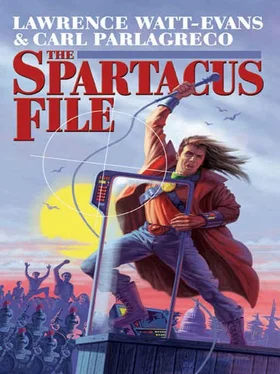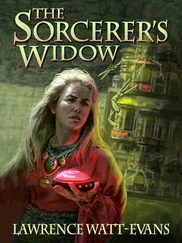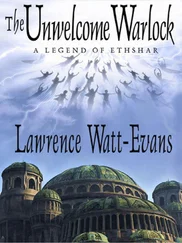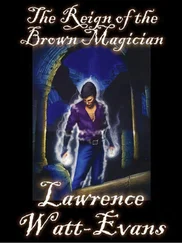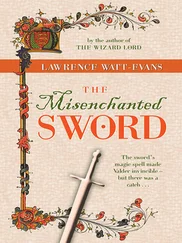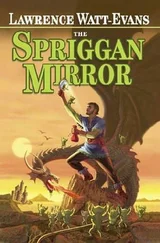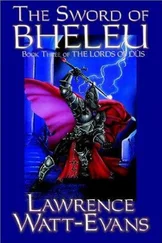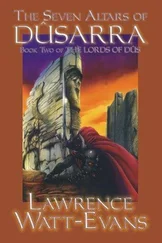Lawrence Watt-Evans - The Spartacus File
Здесь есть возможность читать онлайн «Lawrence Watt-Evans - The Spartacus File» весь текст электронной книги совершенно бесплатно (целиком полную версию без сокращений). В некоторых случаях можно слушать аудио, скачать через торрент в формате fb2 и присутствует краткое содержание. Жанр: Фантастика и фэнтези, на английском языке. Описание произведения, (предисловие) а так же отзывы посетителей доступны на портале библиотеки ЛибКат.
- Название:The Spartacus File
- Автор:
- Жанр:
- Год:неизвестен
- ISBN:нет данных
- Рейтинг книги:3 / 5. Голосов: 1
-
Избранное:Добавить в избранное
- Отзывы:
-
Ваша оценка:
- 60
- 1
- 2
- 3
- 4
- 5
The Spartacus File: краткое содержание, описание и аннотация
Предлагаем к чтению аннотацию, описание, краткое содержание или предисловие (зависит от того, что написал сам автор книги «The Spartacus File»). Если вы не нашли необходимую информацию о книге — напишите в комментариях, мы постараемся отыскать её.
The Spartacus File — читать онлайн бесплатно полную книгу (весь текст) целиком
Ниже представлен текст книги, разбитый по страницам. Система сохранения места последней прочитанной страницы, позволяет с удобством читать онлайн бесплатно книгу «The Spartacus File», без необходимости каждый раз заново искать на чём Вы остановились. Поставьте закладку, и сможете в любой момент перейти на страницу, на которой закончили чтение.
Интервал:
Закладка:
Casper blinked.
Colby waited for a reply, but Casper could not come up with anything to say, and at last Colby snorted in disgust and turned away.
Casper watched him go.
And finally, the words came to him, too late to be spoken aloud.
No, they didn't have a democratically-elected government, they had a one-party state. Even in the primaries, when there were primaries, the only choices the voters were offered had been selected for them from the class of professional politicians by other professional politicians. And they didn't have a free market economy because the Consortium and the other government-granted monopolies had, with the help of the Party politicians, taken over the marketplace and rearranged it to suit themselves.
But was that enough to justify a revolution? The politicians had been elected; even if people weren't happy with them, they'd voted for them. The two old parties had been merged into the Party to deal with the Crisis, and the Party had done what it promised. The Crisis was over, but the people still voted for the Party; the Greens held a few West Coast seats in Congress, but not enough to matter, while the Libertarians and Socialist Workers and the rest couldn't get more than one or two percent of the vote.
And that meant that those people were hardly likely to march in the streets in protest, let alone take up arms and assault the power stations and communications centers.
Casper frowned.
There was something wrong here. There was something in his thinking that didn't match the real world.
If it was his thinking, at all.
He'd never really hated the Party before; he'd considered it a sort of necessary, or at least inevitable, evil. A divided, two-party government had been inefficient and wasteful, unsuited to the complex modern world, and had brought on the Crisis, when the American economy virtually collapsed-that's what the propaganda always said, and most of the American people believed it. George Washington's warning against political parties was a favorite theme in Party literature, and the countries of eastern Europe, with their dozens of parties and unstable coalition governments, were held up as bad examples-better by far, the Party said, to have one organization providing the candidates. And everyone agreed that the little parties, with their extremist views, were all just eccentrics and crazies, relics of an earlier era. No one wanted them in power. The Greens were useful as a prod, but nobody wanted a Green government.
Casper had always gone along without really thinking about it. He'd been too busy with his own problems to care about politics.
But now he was thinking about it. He thought about it constantly. He was obsessed with politics, with strategies and tactics, with theories of government and constitutional rights, all of it stuff that had never concerned him before.
This wasn't anything a spy would need, let alone an assassin-but it wasn't, Casper realized, his own thinking at all.
Just what had NeuroTalents put in his head?
Chapter Sixteen
“If you look at history,” Casper said, “you'll see that a revolution can only succeed if the military either supports it or remains neutral. The final Soviet coup failed because the military came out for Yeltsin; Napoleon succeeded where Robespierre failed because he had the army behind him.”
“You think you can subvert the military, then?” Colby asked. He, Casper, and Ed, the bearded member of PFC, were seated around the kitchen table, talking.
Casper considered that question for a long moment, then admitted, “Probably not. Not as it's presently constituted.”
“Then how can you expect to win?” Ed demanded. “Maybe now you're beginning to see why we've used terrorism-there isn't much hope in historical models, but we have to do something.”
“But it won't work,” Casper insisted. “Terrorists can't overthrow a government. The only times terrorism has been at all successful have been in driving out an occupying army, by making it too expensive to stay; that's not the situation here. An occupying army has somewhere else to go home to; the Democratic-Republican Party doesn't.”
“We know it doesn't work,” Colby said, glaring at Ed. “That's why we stopped. But what other choice do we have?”
“You have to take the long view,” Casper replied. “Build up discontent, use non-violent civil disobedience, force the government to crack down-that makes the people in power appear as oppressors.”
“They are oppressors.”
“Of course, but you have to make them look the part.”
“Which is what you're doing,” Ed said. “Well, I don't have your patience.” He stood up.
Casper watched as Ed walked away, then turned to Colby, who shrugged and sat silently in his chair.
Casper was thinking over what he had just said to Ed, and trying to match it against reality-the reality of the history of the United States.
Since 1865, no revolutionary group in the U.S. had ever gotten very far. There had never been a serious coup attempt in all the hundred and fifty years since. Every assassination had resulted in a peaceful transfer of power to the designated successor. Even the most disputed elections hadn't led to violence.
Casper wanted to think that no revolutionary in all that time had had his own abilities, and that the government had never before been so corrupt and unpopular, but he had to admit to himself that he was probably being optimistic about that. Hell, before his imprinting he hadn't had any knowledge of subversion or rebellion, and the stuff in his head now couldn't be any better than the abilities of the people who wrote the file, none of whom had actually overthrown the U.S. government.
And the government had been corrupt or unpopular during Reconstruction, under Hoover, in the Vietnam era-there had been revolutionary movements and mass demonstrations sometimes, but nothing had ever come close to actually overthrowing the system.
Revolutions and counter-revolutions in the U.S. had come about at the ballot box or in the courts, not in the streets. Cecelia had been telling him that, telling him that the way to defy the power structure was to become part of it, but he had been resisting.
He had wanted to find some way to bring the whole thing down from the outside, but looking at it, he didn't think it could be done. Seizing power stations wouldn't do anything but piss people off.
The communications network couldn't be seized-there was far, far too much of it. Two thousand TV networks, transmitting by satellite; the internet supplying information through a system designed to withstand anything up to and including a nuclear war; the multiply-redundant cellular phone systems; thousands of radio stations
…?
And that wasn't even considering such alternative, semi-obsolete forms as faxes and newspapers.
Taking over the military… well, first off, Casper doubted it could be done; the military was so thoroughly integrated with the civilian population and power structure that he couldn't see any way to detach it. But even if he did, he didn't think a military coup would work. There were three million people in the military-and three hundred million guns in civilian hands. The army would not necessarily bring the National Guard with it, and almost certainly wouldn't carry the police.
And it wouldn't carry the media, or the people.
Besides, the idea was to set up a better, more democratic government, a multi-party government, not a military dictatorship.
A temporary military government might not be a disaster; it had certainly worked in other countries. Casper could use it to root out the most corrupt elements of the government, then stage new elections. But the military-backed candidates would lose in the elections, and the military might refuse to step aside.
Читать дальшеИнтервал:
Закладка:
Похожие книги на «The Spartacus File»
Представляем Вашему вниманию похожие книги на «The Spartacus File» списком для выбора. Мы отобрали схожую по названию и смыслу литературу в надежде предоставить читателям больше вариантов отыскать новые, интересные, ещё непрочитанные произведения.
Обсуждение, отзывы о книге «The Spartacus File» и просто собственные мнения читателей. Оставьте ваши комментарии, напишите, что Вы думаете о произведении, его смысле или главных героях. Укажите что конкретно понравилось, а что нет, и почему Вы так считаете.
